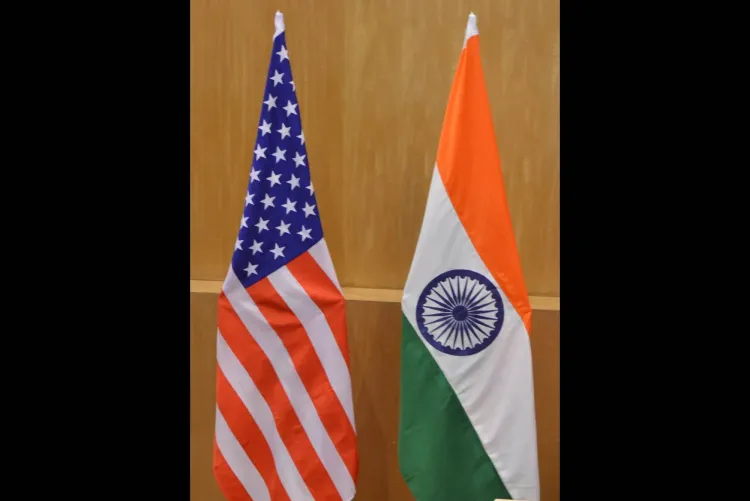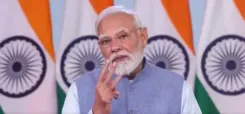Can the India-UK FTA Teach the US to Embrace Empathy in Trade?

Synopsis
Key Takeaways
- India-UK FTA exemplifies strategic partnership.
- Recognizes the importance of mutual respect in trade.
- Highlights the need for the US to adopt a more empathetic approach.
- Focus on shared growth rather than competition.
- Calls for understanding India's developmental needs.
New Delhi, Aug 1 (NationPress) In light of the recently finalized India-UK Free Trade Agreement (FTA), the current US administration has a chance to reshape its relationship with India—not as a rival, but as a strategic ally whose progress can enhance our mutual prosperity, a report indicated on Friday.
The report from the Washington-based nonprofit Middle East Media and Research Institute (MEMRI) suggests that the success of India-US negotiations hinges on a renewed understanding.
“India's recent success in finalizing an FTA with the United Kingdom starkly contrasts with the prolonged and tense discussions ongoing with the United States,” the report observed.
Furthermore, the India-UK FTA transcends a mere trade agreement; it embodies a mutual understanding, strategic alignment, and a collective vision for inclusive growth.
“This agreement was the result of three years of challenging yet ultimately rewarding negotiations between two mature economies that opted for pragmatism over pretense. The UK, while navigating its post-Brexit economic identity, recognized in India not just a market but a collaborator whose economic progress could enhance its own industrial goals,” the MEMRI report stated.
Britain's contemporary industrial strategy, emphasizing advanced manufacturing, clean energy, and digital technologies, aligns well with India's reform-driven growth path and its ambition to evolve into a $5 trillion economy by 2027.
The India-UK agreement extends beyond tariff cuts, granting zero-duty access to 99 percent of Indian exports, facilitating the mobility of professionals, and addressing social security contributions through the Double Contribution Convention.
“It was fundamentally a pact rooted in mutual respect and forward-looking trust... Conversely, the Indo-U.S. trade talks remain ensnared in structural disputes and ideological tensions. These disagreements—whether regarding agricultural subsidies, digital trade, or Special and Differential Treatment at the WTO—are longstanding. What intensifies them is the enduring perception gap,” the report underscored.
Despite India's macroeconomic strength and global ambitions, it remains a nation where MSMEs constitute the backbone of employment, agriculture is sensitive to price fluctuations, and per capita consumption lags behind developed nations.
“In its quest for reciprocal concessions, the US administration often overlooks these structural realities. It views India's ascent as a zero-sum game, fearing that every gain for India comes at the cost of American manufacturing. This mindset stifles progress and risks alienating a partner whose strategic alignment with the U.S. is otherwise strong,” the report highlighted.
The takeaway lies in the UK's strategy. Britain did not compromise on its interests; instead, it chose to engage with India on equal footing, respecting its sensitivities and aspirations.
“The outcome was a comprehensive, high-quality agreement that promises to unlock substantial opportunities for both parties. If the US intends to establish a significant FTA with India, it must abandon its transactional perspective and adopt a more nuanced, empathetic approach. It must understand that India's demand for developmental safeguards is not obstructionism; rather, it is a principled stance based on real-life experiences,” the report concluded.









